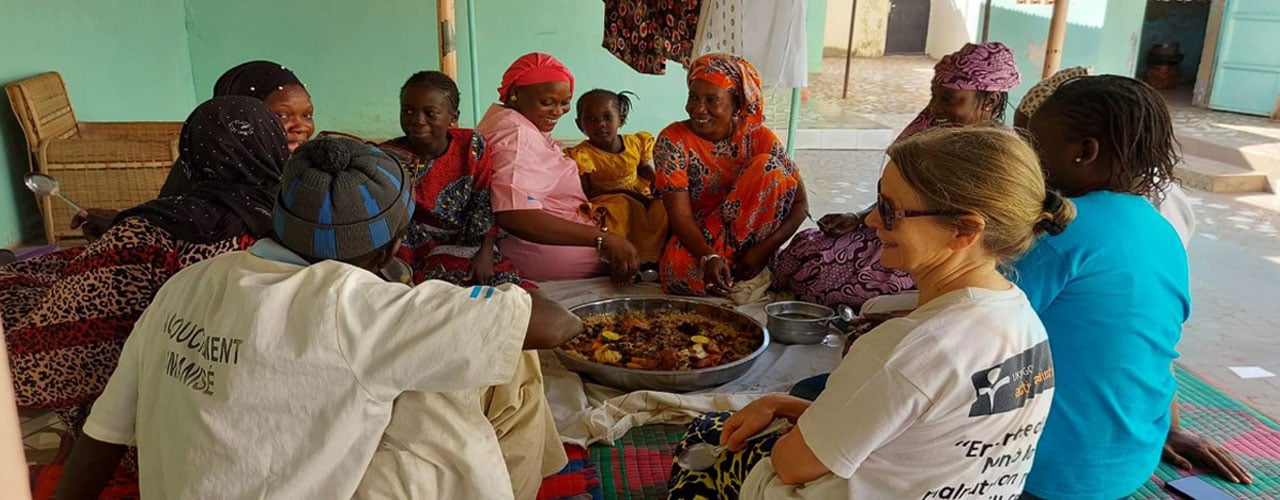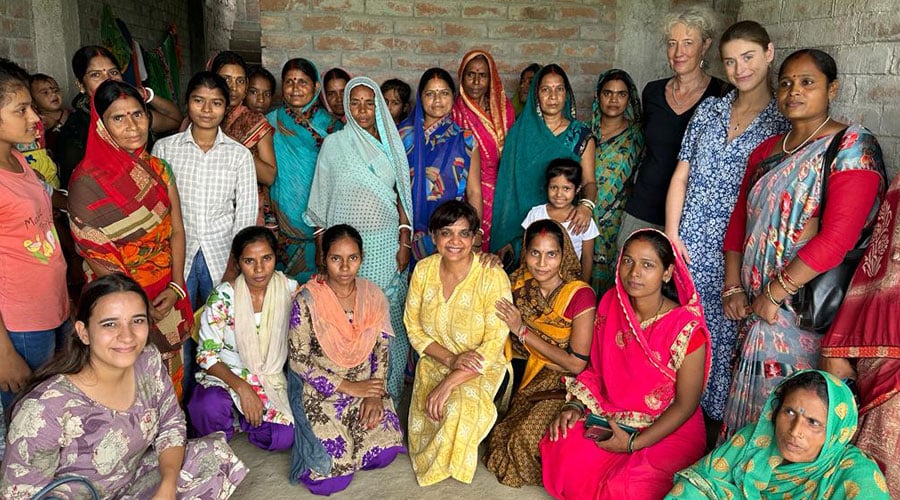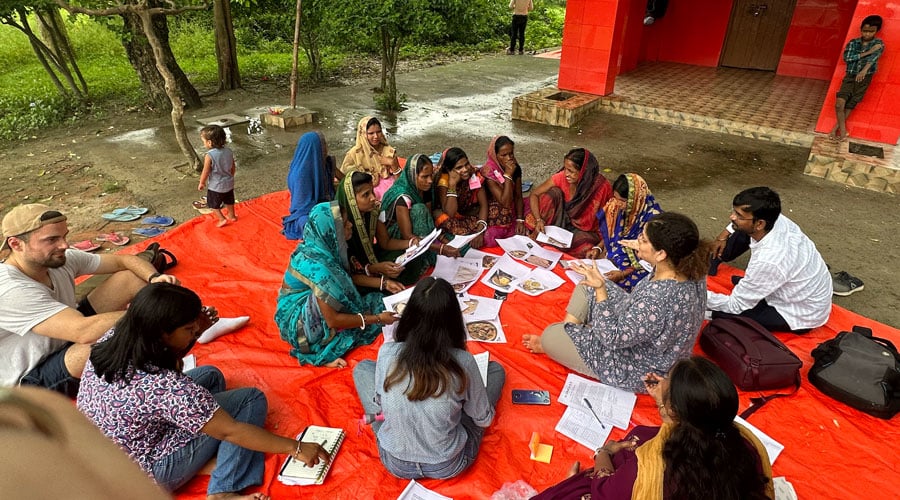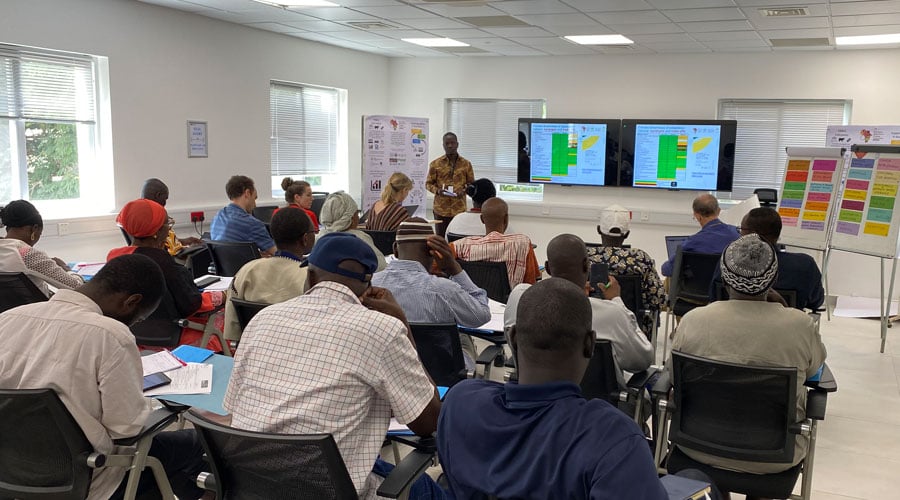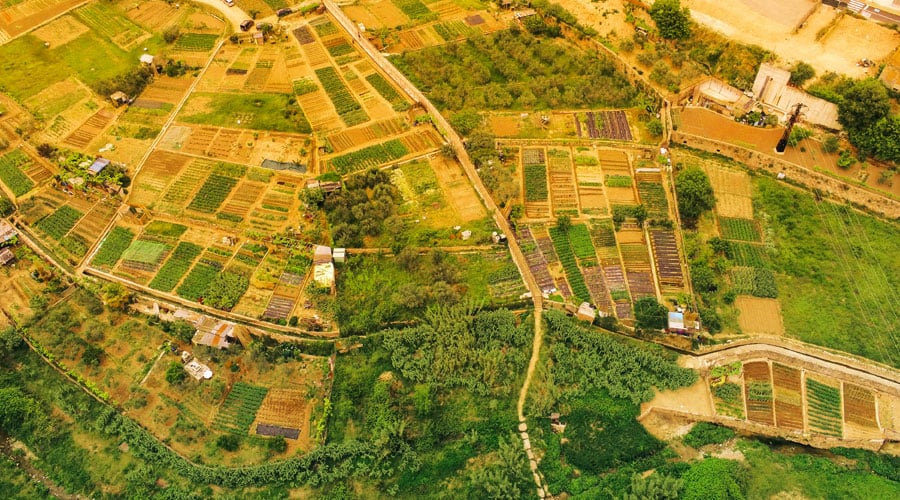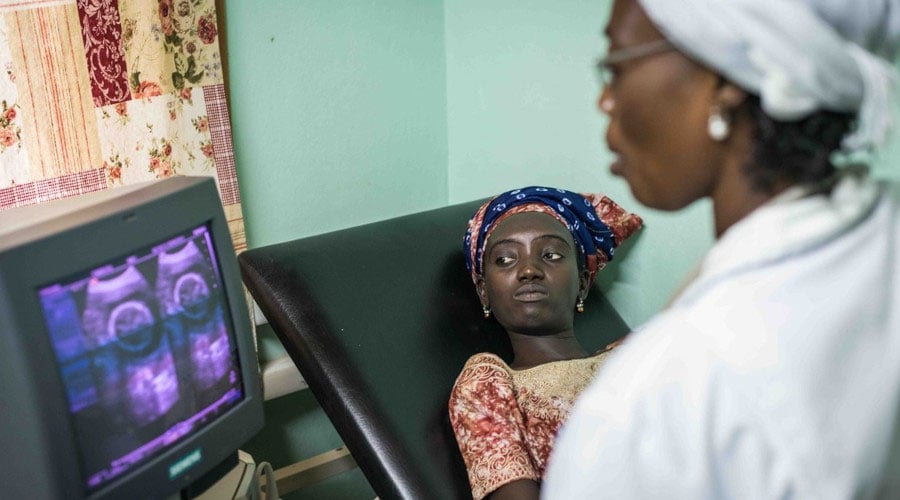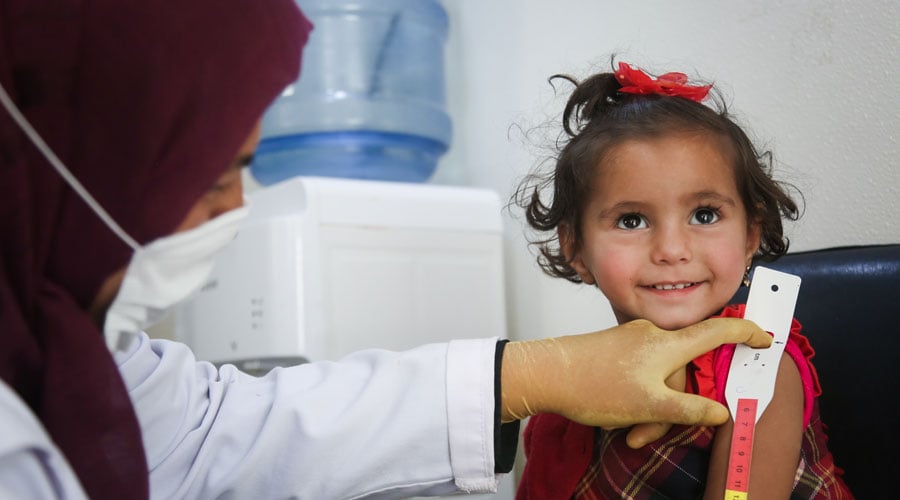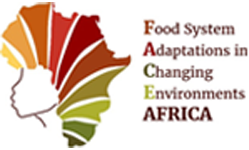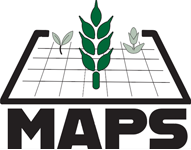We form the core of research and postgraduate education on human nutrition at the School. The group brings together a range of experts and approaches, from discovery science through to applied and policy perspectives, all working to improve public health nutrition in line with Sustainable Development Goals 2 (Zero Hunger) and 3 (Good Health and Well-Being).
We place great value in building and sustaining equitable partnerships with other researchers, policy makers and practitioners, to ensure that our work has maximum impact.
The Group runs the face-to-face MSc Nutrition for Global Health that is accredited by the Association for Nutrition as well as an open access online course in nutrition and agriculture. The Group supports research degree students in the UK and overseas.
The Nutrition Group delivers world-class research and postgraduate education to reduce malnutrition in all its forms, and to improve the environmental sustainability and resilience of food systems, in the UK and globally. Please see information below regarding ongoing and past research projects.
Our research focus
- Design and Evaluation of Nutrition Interventions
It is crucial to ensure proper design and evaluation of nutrition interventions to conduct rigorous research and effectively inform policy uptake. Through all intervention projects, the Nutrition group are:
- Contributing to the development of tools for nutrition programme planning
- Working with numerous NGOs and multiple public sector departments to build capacity in programme impact and process evaluation
INFUSION group in India. Credit: Emily Fivian. - Dietary Intakes and Behaviour Change Communication
Research to generate evidence on effective approaches to improve nutrition through dietary behaviour change is led by our group through UPAVAN and INFUSION. Examples of the development and evaluation of complex behaviour change interventions across multiple settings include:
- Effectively improving the quality of children and women’s diets in rural India by utilizing established women’s groups to facilitate discussions of participatory videos on agriculture and nutrition (UPAVAN).
- Understanding how behaviour change can increase demand for health diets within market-based interventions aimed to improve consumption of nutrient-dense foods. This project will draw on elements from behavioural economics and changing choice architectures (INFUSION).
Additionally, our group has pioneered the use of mathematical optimisation through the Optifood tool, to inform the development of dietary guidelines and food-based recommendations, particularly for nutritionally vulnerable populations.
INFUSION group in India. Credit: Emily Fivian. - Epigenetics
Our novel epigenetic research in the MRC Gambia unit has identified and focuses on:
- The shift of focus from pregnancy to preconception maternal nutrition status
- Periconception maternal diets affect NDA methylation of her offspring
- Seasonal dietary variations in Gambian women influence 13 relevant plasma biomarkers
- These biomarkers predict changes in DNA methylation in infants’ lymphocytes and hair follicles after birth
- Food Systems and Nutrition Pathways
Research within food systems has embraced multidisciplinary approaches to facilitate complex factors influencing optimal population nutrition status. This approach is crucial in guiding initiatives aimed at optimising nutrition and the well-being within vulnerable groups. Through IMMANA, the Nutrition group prioritises:
- Enhancing a comprehensive and well-structured body of scientific evidence
- Formulating effective policies and investments in agriculture-food systems to enhance nutrition outcomes.
- Directing transformation of global agriculture-food systems
- Ensuring the provision of sustenance for global populations in an ecologically sustainable and equitable way
- Interactions between Infections and Chronic Disease
With the shift from a phase characterized by prevalent infections and undernutrition to one marked by elevated rates of obesity and chronic non-communicable disease, it’s evident that early-life infection and undernutrition may be amplifying the likelihood of later-life chronic diseases. The Nutrition Group is working towards understanding;
- The progression of HIV infection, which, when managed with lifelong antiretroviral therapy, heightens the susceptibility to conditions like diabetes, lipodystrophy, hypertension and cardiovascular disease.
- Nutrition and metabolic complexities at the interface of infectious and chronic illnesses to enhance the management of both, particularly in resource-limited settings.
- Policy Analysis
The Nutrition Group collaborates with the Faculty of Public Health and Policy to evaluate food and nutrition relevant public health policies, drawing on social science approaches including:
- Investigating the effectiveness of policy mechanisms such as public-private partnerships
- Investigating the increasingly complex political geography of decision-making on food and nutrition
FACE-Africa stakeholder workshop. Credit: Rosie Green. - Sustainable Food Systems
The Nutrition and Climate Change groups are currently researching the rapidly evolving food systems and their influence on population nutrition, health and the environment. The following projects; FACE Africa, South Asian Nitrogen Hub, ABC-SHEADE, IFSTAL, and SHEFS (phase 1 completed) are collectively engaged in;
- Exploring ways to shape food systems to improve health, reduce environmental impact and increase resilience to environmental change.
- Developing a clear framework for a healthy and sustainable future from farm to fork
- The Triple Burden of Malnutrition
The triple burden of malnutrition in low- and middle- income countries is a result of the rapid nutrition transitions driven by urbanization, economic growth, technological development, and globalization. The Nutrition and Climate Change groups are leading on the following projects ABC-SHEADE, CHANGE, and EAT-LANCET projects in order to understand how;
- Changing food systems and diets high in ultra-processed foods contribute to this phenomenon
- New strategies are required to address persistent undernutrition alongside rising overnutrition in resource-constrained settings.
MRC The Gambia maternal neonatal and child health. Credit: LSHTM - Undernutrition
We are leads in developing and evaluating initiatives to address all forms of undernutrition (stunting, wasting, underweight and micronutrient deficiencies). Our research projects—Action Against Stunting, CHANGE, Changing the Story of Dietary Inequality, IMMANA, MAPS and the MRC Gambia—place priority on:
- Management and prevention of acute and chronic undernutrition,
- Nutrition supplementation,
- Food fortification,
- Breastfeeding promotion programmes and
- Community care and counselling
Within this research theme, our staff contribute to various global initiatives including No Wasted Lives, the International Malnutrition Taskforce, the Global Nutrition Report, the WHO Guidelines for complementary feeding and young children 6-24 months of age, and the Research Consortium for School Health and Nutrition.
“Nutrition is not simply a science; it is an agenda” - Dr. Jean Mayer
Kerry Ann Brown
Kenda Cunningham
Maria Derakshan
Aakriti Gupta
Research Fellow
Modou Jobe

Gilbert Miki
Audrey Mwendapole
Research Student-MPHIL/PHD-Epidemiology and population health
Giulia Scarpa

Sarah Vickers
Sera Young
Explore each of the projects currently being conducted within the Nutrition Group.
- ABC-SHEADE
In the Accelerating Behaviour Change towards Sustainable and Healthy Diets in Europe (ABC-SHEADE) project the team aims to identify ways to accelerate dietary change towards more sustainable and healthy diets in the UK and Italy. We do this by studying so called “champions”: people that have found their way from average or unhealthy and unsustainable diets, to sustainable and healthy diets over an 8-year time span (from 2012 to 2020). We study their changes in food purchase, their substitution patterns and analyse what influence price changes may have had on their food purchase. The project also contains a large qualitative part where we interview champions and other consumers about their purchase behaviour. We use the obtained evidence to identify key foods and substitutions and key motivations that enabled champions to change their diets and use this to inform policy and practice on effective ways of accelerating dietary behaviour change. The project is funded by the AF Jochnick Foundation.
- Action Against Stunting Hub
More than 149 million children, a majority of whom reside in Asia and Africa, are stunted, according to WHO statistics. The Action against Stunting Hub aims to challenge and transform current research on child stunting. The focus is the 'whole-child' approach. The tools developed within the Hub have the potential to change the lives of a million children, families and communities. Our global interdisciplinary team is dedicated to make a long-lasting difference not only to the children and families we work with, but also to actively inform local governments on how to tackle this preventable condition at grassroots level.
- ANH Academy
The Agriculture, Nutrition and Health (ANH) Academy is a global community of interdisciplinary researchers, practitioners, and policymakers working on agriculture and food systems for improved nutrition and health, with over 9,000 members in 145+ countries.
It is one of three workstreams of the Innovative Methods and Metrics for Agriculture and Nutrition Actions (IMMANA) programme, which since 2015 has been accelerating progress on tools, data and capacity needed to guide evidence-based policy in agriculture-food systems, nutrition and health.
The ANH Academy aims to facilitate learning and sharing among this global network and beyond; to lower barriers to participation in science and policy; and to foster equitable and interdisciplinary partnerships in research and practice.
Objectives:
- Build an interdisciplinary community to share innovative research in agriculture and food systems for improved nutrition and health
- Stimulate the development and harmonisation of new research
- Support the strengthening and sharing of capacity among the research community to undertake inter-sectoral and interdisciplinary research
- Facilitate the uptake of robust evidence in policies and programmes in agriculture and food systems for healthy, sustainable and equitable nutrition
What we do:
- Annual ANH Academy Week, where hundreds of Academy members meet for learning labs and an interdisciplinary research conference
- Working groups to accelerate research by sharing experience and synthesising disparate research methods, metrics and approaches
- Skills-based trainings via face-to-face gatherings and webinars
- Support Centre for Agriculture and Nutrition Research (SCANR)
- Curriculum enrichment resources and support for educators in higher education in interdisciplinary topics on agriculture-food systems, nutrition and health
- CHANGE
Child malnutrition, particularly wasting (low weight-for-height), poses a global health crisis with 900,000 yearly deaths among <5-year-olds. Climate change's impact on vulnerable populations intensifies this concern. Existing treatment programs focus on immediate survival but neglect potential long-term health risks, including non-communicable diseases (NCDs) like heart disease and diabetes. The CHANGE project addresses these challenges over three years by revaluating treatment outcomes and questioning rapid post-malnutrition weight gain practices.
- Changing the Story of Dietary Inequality
Diet has emerged as the leading risk factor for premature death in the UK. Low-income individuals tend to have less healthy eating habits and are more prone to obesity. Poverty, food insecurity, and dietary disparities are reducing life expectancy in economically deprived areas. Promotion of unhealthy diets, with minimal advertising for fruits and vegetables have contributed to one in ten children starting school obese, and government policies targeting nutrition in pregnancy and childhood are falling short. Additionally, the food system is responsible for one-third of global greenhouse gas emissions. This three-year program aims to shift public discourse, develop evidence-based solutions to address dietary inequality, and align with emerging policy actions related to food and climate change.
- FACE Africa
The climate crisis poses significant challenge within Africa affecting food security due to unpredictable weather patterns affecting crop quality and yields. Under current projections these problems will likely worsen. The FACE-Africa project aims to use routinely collected environmental, agricultural, nutrition and health data, to estimate the ability of national food systems to deliver healthy diets in the future. We collaborate with governments, farmers, retailers, and consumers, using data to inform our strategies. We aim to develop realistic interventions to ensure future food system viability, evaluating their impact on environmental sustainability and population health.
- IMMANA & ANH
The Innovative Methods and Metrics for Agriculture and Nutrition Actions (IMMANA) programme was established in 2015 and aims to accelerate the development of a robust and coherent scientific evidence base to support effective policy and investments in agriculture-food systems for improved nutrition. IMMANA’s main programme areas include:
- Competitive research funding grants programme, aimed at advancing scientific understanding of linkages between agriculture and food systems and health and nutrition outcomes.
- Fellowships programme for career development.
- The Agriculture, Nutrition and Health (ANH) Academy, a multi-disciplinary global network of over 9000 members.
Evidence Synthesis Centre, where IMMANA conducts original research, evidence synthesis and provides support for research.
- INFUSION
INFUSION seeks to improve understanding of the functioning of rural food markets from a nutrition perspective, and to establish, test and deliver evidence for market interventions that improve the availability and affordability of nutrient-dense foods (especially fruits, vegetables and animal-sourced foods) in rural communities in Bihar and Odisha in India. NFUSION is funded by the Bill & Melinda Gates Foundation and the Foreign, Commonwealth and Development Office of the UK Government. This five-year project will develop and test innovative ideas focused on leveraging food markets in India to improve access of rural communities to nutrient-dense foods.
- MAPS
Micronutrients obtained from food are vital for health, but deficiency leads to serious health and economic consequences. The Micronutrient Action Policy Support (MAPS) tool aims to provide accurate micronutrient deficiency estimates at national and sub-national levels in Africa, facilitating informed decisions for health and agriculture sectors. The tool offers novel features to explore deficiency risks across spatial and temporal scales, delivering dietary supply estimates for African nations using national and population data.
- MRC Gambia
The MRC Unit The Gambia at LSHTM is one of two research units established in sub- Saharan Africa by the Medical Research Council UK and is the single largest investment in medical research in a low- and middle-income country. Nutrition research at MRC Unit The Gambia at LSHTM concentrates on identifying, and then developing, next-generation nutrition interventions through discovery science that will inform a clearer understanding of the basic mechanisms linking diet and disease.
- Research Consortium for School Health and Nutrition
The Research Consortium for School Health and Nutrition is one of five initiatives of the School Meals Coalition: a convening of 95+ national governments committed to rebuilding, improving and scaling up the provision of school meals and complementary school health services by 2030. The Consortium was established at the request of the School Meals Coalition member states, who called for a global Research Consortium to provide independent, credible evidence to inform the design of equitable, efficient and cost-effective national school health and nutrition programmes.
- SHEFS
The emerging pressures of urbanization, changing diets, and land use shifts are causing a rise in malnutrition and non-communicable diseases, harming people, economies and the environment. The SHEFS project aims to utilise statistical, analytical, and experimental methods along with new data from diverse locations in India and South Africa to uncover food system-environment-health interactions. The primary purpose of SHEFS is to provide new, interdisciplinary research that policymakers can use to shape food systems that will deliver healthy, accessible, affordable and sustainable food for future populations.
- South Asian Nitrogen Hub
Humans have massively altered nitrogen flows on our planet, leading to both benefits for food production as well as creating multiple threats to the environment. There are few places on Earth more affected than South Asia, with levels of nitrogen pollution rapidly increasing. Nitrogen pollution damages human health, threatens biodiversity, and contributes to global climate change. The UKRI GCRF South Asian Nitrogen (SANH) aims to tackle the nitrogen challenge by bringing together experts from over 32 leading research organisations from across South Asia and the UK. We work with researchers from all eight South Asian countries and are dedicated to international co-operation for a healthier planet. The Hub includes research on how to improve nitrogen management in agriculture and investigates how nitrogen is impacting our ecosystem. SANH is also working with South Asian governments to further develop the policy conversation on nitrogen management in the region.
The Nutrition Groups work alongside many partners both in the UK and overseas. Below is the list of some of our main past and present partner organisations and institutions.
- Addis Ababa University (AAU)H
- Academy of Medical Sciences
- African Nutrition Society
- Ag2Nut Community of Practice
- Birkbeck University of London
- Bill & Melinda Gates Foundation
- British Geological Survey (BGS)
- Centre for Chronic Disease Control (CCDC)
- Centre for Maternal, Reproductive and Child Health (MARCH)
- City University of London
- Climate Change Agriculture and Food Security (CGIAR)
- Digital Green
- Drivers of Food Choice Programme
- Elanor Crook Foundation
- Emergency Nutrition Network
- European and Developing Countries Clinical Trial Partnership (EDCTP)
- German Ministry for Research and Education (BMBF)
- GIZ Deutsche Gesellschaft Für Internationale Zusammenarbeit
- Helen Keller Institute
- Indian Council of Medical Research National Institute of Nutrition
- International Crops Research Institute for the Semi-Arid Tropics
- International Dietary Data Expansion Project
- International Food Policy Research Institute (IFPRI)
- International Initiative for Impact Evaluation
- International institute for Applied Systems Analysis (IIASA)
- International Livestock Research Institute
- Johns Hopkins University
- Lilongwe University of Agriculture and Natural Resources (LUANAR)
- Liverpool School of Tropical Medicine
- London International Development Centre (LIDC)
- Malaria Vectored Vaccines Consortium 2 (MVVC2)
- Medical Research Council (MRC)
- PATH Vaccine Solutions
- Public Health Foundation of India
- Royal Veterinary College University of London
- Science made simple
- Sifillum Universitatis Cheikh Anta Diop Dakarensis
- Southeast Asian Ministers of Education Organization (SEAMEO)
- Stanford University
- The African Partnership for Chronic Disease Research (APCDR)
- The Food Foundation
- The Jenner Institute Oxford
- Tufts: Gerald J. and Dorothy R. Friedman School of Nutrition Science and Policy
- UK AID
- United Nation Food Systems Summit
- United Kingdom Research and Innovation
- United Nations High Commission for Refugees
- University College London
- University of Aberdeen
- University of Brighton
- University of California, Davis (UCD)
- University of Cambridge
- University of Kwazulu-Natal
- University of Nottingham
- University of Sheffield Institute for Sustainable Food
- University of Siena
- Université Cheikh Anta Diop de Dakar (UCAD)
- Wellcome Trust
- World Agroforestry
- World Food Programme
- World Health Organisation
Seminars
Nutrition Group Seminars usually take place on the second Thursday of the month during lunch times (12.45 pm - 13.30 pm). This seminar is an informal space to talk about your current projects within the Nutrition Group. The event takes place in a hybrid format through Zoom and in a university teaching room. No events are recorded, we are always looking for members of staff to present so if you wish to take part in or attend a seminar, please contact either Fanny Sandalinas, (fanny.sandalinas@lshtm.ac.uk) or Sara Strout (sara.strout1@lshtm.ac.uk).
Opportunities
The Group is delighted to receive inquiries from prospective students, postdoctoral fellows, and visitors who share a keen interest in the expansive fields of Nutrition, Agriculture, and Global Health. For more information, please don't hesitate to reach out to our group email at nutgroup@lshtm.ac.uk. Alternatively, if you have a specific focus in mind, we encourage you to peruse our "Who we are" page and connect with any of our experts specialising in your area of interest.
